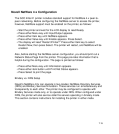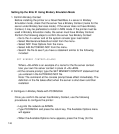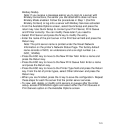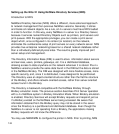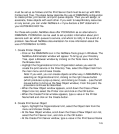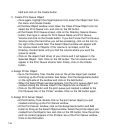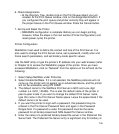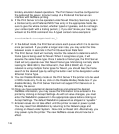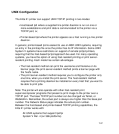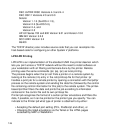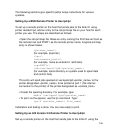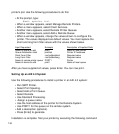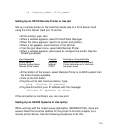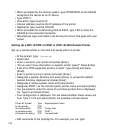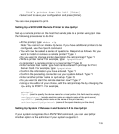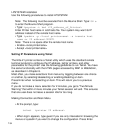
7-27
UNIX Configuration
The Elite 21 printer can support UNIX TCP/IP printing in two modes:
• Host-based lpd where a supplied line printer daemon is run on one or
more workstations and print data is communicated to the printer via a
TCP/IP port, or,
• Printer-based lpd where the printer appears as a host running a line printer
daemon.
In general, printer-based lpd is easiest to use on BSD UNIX systems, requiring
an entry in the printcap file once the printer has its IP information. Some UNIX
System V systems have restrictions on support of remote lpr/lpd printers,
requiring that the host-based lpr/lpd approach be used. For many operating
systems, you have the option of using host-resident printing or print server-
resident printing. Each mode has certain advantages.
• The host-resident method can print the username and filename on its
banner page; the print server-resident method prints a banner page with
the host's name.
• The print server-resident method requires you to configure the printer only
one time, when you install the print server. The host-resident method
requires that a printing daemon be installed on every host that you want to
be able to print jobs.
Note: The printer will also operate with other host-resident print
supervisor/spooler programs that present a print image to the printer over a
TCP/IP port. The base TCP/IP port number can be changed via Telnet, or
WebAdmin. Remember, the actual port is always one higher than the base port
number. The Network Status page indicates the actual port number.
Between the host-based and printer-based TCP/IP printing capabilities, the
Elite 21 printer works with:
All UNIX systems that support lpd/lpr
System V Rel. 4 (on 386 platforms)



